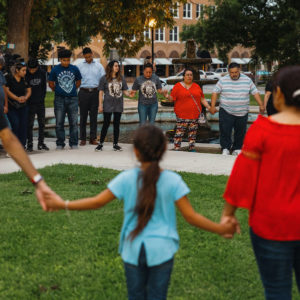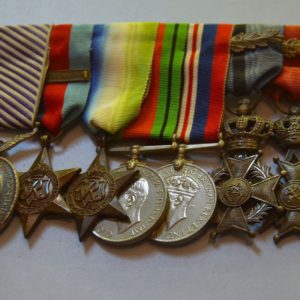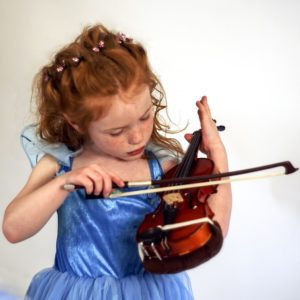My brother is an occasionally homeless alcoholic who knows how to love a poem. I have shelves of poetry books, and he has none. I have a Master of Fine Arts in creative writing; he didn’t get through his first semester of college. I’ve written poems in various forms: blank verse, free verse, even a villanelle. I can recite a little Dickinson, some Frost, the requisite Auden. My brother can’t do any of that. The truth of it remains that he knows how to open himself up to a poem in a way that I do not.
I know this because he lived with me during one of the periods when he was trying to pull his life back together. He didn’t have a car, so every morning I would drive him to work. I liked to listen to Garrison Keillor’s “The Writer’s Almanac.” My brother didn’t much care for it. He had no interest in literary things.
But every morning we squinted into the rising sun as Garrison Keillor told us about the advent of the birth control pill or the establishment of the Environmental Protection Agency or occasionally even the birth of a famous writer. Garrison and I didn’t see eye to eye on most things political, but no one whose politics I found more palatable back in those days would bother reading a poem on the air—which ought to have told me something about my politics.
None of that mattered to my brother, who didn’t care about Garrison’s politics or mine, and who certainly didn’t want to hear an old fart read a poem every morning. Looking back, I think I had in my head that listening to “The Writer’s Almanac” was good for him. That it would give him some culture.
Or maybe it was my way of rubbing his nose in how our lives were turning out differently. A reminder that I was doing well because I’d made better choices. I worked, I stayed (mostly) off the sauce, I listened to NPR. And by every definable measure, I was the literary brother.
But one morning on our ride, Garrison read “Casabianca,” a 19th-century poem by Felicia Hemans. It’s about a French captain’s son who, during the Battle of the Nile, refused to leave his post on their burning ship until his father gave him permission. His father, we realize, has died:
He called aloud–“say, Father, say
If yet my task is done?”
He knew not that the chieftain lay
Unconscious of his son.
“Speak, Father!” once again he cried,
“If I may yet be gone!”
And but the booming shots replied,
And fast the flames rolled on.
As Garrison read to us, the poem’s tension building, my brother sat up from his usual slouch. He took off his sunglasses.
And shouted but once more aloud,
‘My father! must I stay?’
While o’er him fast, through sail and shroud,
The wreathing fires made way.
My brother leaned forward. He turned up the radio and cocked his ear to the speaker.
There came a burst of thunder sound–
The boy–oh! where was he?
Ask of the winds that far around
With fragments strewed the sea!–
With mast, and helm, and pennon fair,
That well had borne their part–
But the noblest thing which perished there
Was that young faithful heart.
When the last stanza was concluded, my brother jabbed a finger at the radio and shouted: “Now that’s a fucking poem!”
I’ve gotten misty at poems, even gasped once. But never have I experienced my brother’s visceral joy. What would the anointed experts say about this? Is it acceptable to shout approval at “Casabianca,” or is that like admitting on the first day of poetry workshop that your favorite poet is Shel Silverstein?
The truth is that I care what my literary peers think about my tastes. I learned this during my freshman year of college, in my very first writing class, when I said I liked Stephen King, and got the first of many looks that would remind me I came from the wrong side of the tracks.
Maybe the difference between me and my brother is that I worried about that, and he did not. Nor do any of my kin. By the standards of the people who snickered at me for liking Stephen King, I am the most successful member of my family. I am also, without a doubt, the least authentic.
But who can afford to be authentic, with the cost of living what it is?
If authenticity means to tell the truth—about your past, your tastes, your beliefs—without regard to who might be listening, it carries a cost. Though I’m the most financially successful person in my family, it’s the rest of them who pay without flinching.
In his book Telling the Truth, Frederick Buechner says the truth often lives in the pregnant silence before we rush in with words. He writes:
“The one who hears the truth that is silence before it is a word is Pilate, and he hears it because he has asked to hear it, and he has asked to hear it—’What is truth?’ he asks—because in a world of many truths and half truths, he is hungry for truth itself…”
We know the rest of Pilate’s story, or we think we do. He wanted a mathematical proof, a rhetorical act of genius, a logical theorem. The answer he received was the presence of truth, and in the face of his inquisition, this presence grew silent. Silence was the answer, because the truth will not be contained in the mental gymnasiums of men.
Pilate was hungry, but not hungry enough to bear the silence—because in the silence the eyes of your heart turn inward. You have no choice but to be authentic in silence. No wonder we hate it.
My brother and I have known hunger over the years, for very different reasons. I have fasted for my health, or in a superficial kind of repentance, or because I wanted something from God. My brother has gone hungry because he had no money. What each of us could tell you about hunger is this: At some point you cease to feel it.
For a little while, you’re even tempted to think you don’t really need food. That you’ve broken through to some new spiritual plane, or summoned inner reserves of strength. But press through just a few days longer, and you’ll realize all you think about is food. If you don’t feel what you used to know as hunger, it’s only because your body hungers in a way that words can’t express.
Maybe the reason my brother shouted: “That’s a fucking poem!” is that he was hungry. Hungry for simple words that tell, if not the truth, then a truth.
Looking back, I realize that I was hungry too. But like Pilate, I wasn’t yet willing to face the hunger on its own terms. To be fed by a silence and a truth that won’t fit into my billfold, nor make a clever aphorism. Maybe the difference between my brother and me was that he had the good sense to eat when a meal was offered. To love a poem without interrogating it the way we clever boys do. To open his heart without worrying what others might see in there.
Tony Woodlief lives and writes in North Carolina. His short fiction has appeared in Image, Ruminate, Saint Katherine Review, and Dappled Things, while his essays about parenthood and faith have appeared in The Wall Street Journal, Comment, and The London Times. He runs a website for fathers called Intentional Fathering, and can occasionally be found on Twitter.





